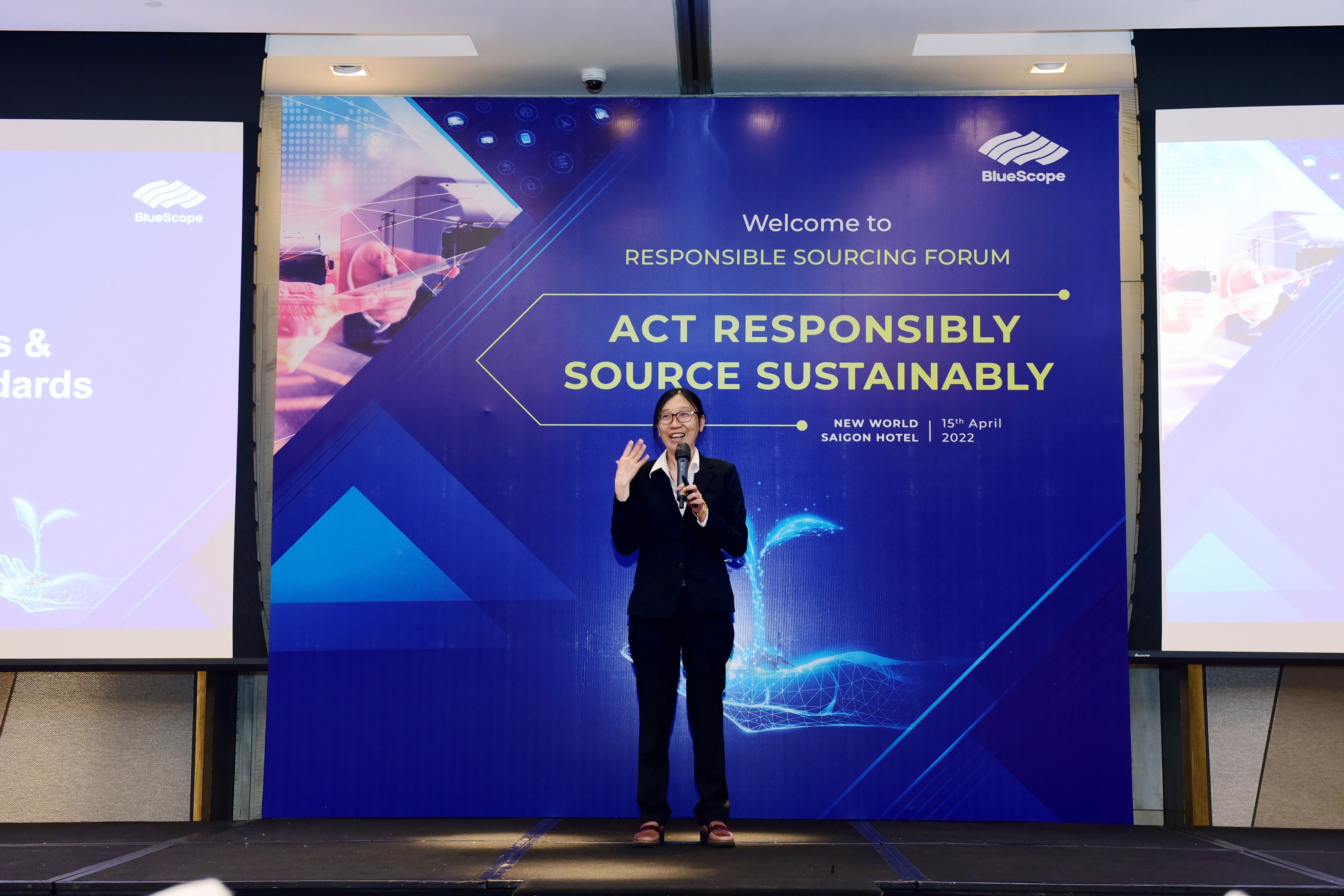NS BlueScope Vietnam has committed to reduce carbon emissions and move towards carbon neutrality by 2050 at the Responsible Sourcing Forum in HCM City.

NS BlueScope Vietnam has committed to reducing carbon emissions and moving towards carbon neutrality by 2050 at the Responsible Sourcing Forum in HCM City.
At the event, NS BlueScope Vietnam announced its Responsible Sourcing Programme strategy for 2022-30 and responsible sourcing strategy for addressing climate change to 2050. It also introduced case studies demonstrating reductions in greenhouse gas emissions and dealing with climate change.
“Over the next eight years, we are on track to reduce our carbon emissions by 30 per cent and move towards carbon neutrality by 2050, in line with the Government’s target. We hope to spread this goal across our entire supply chain to create a business community that is carbon neutral by 2050,” said Bui Phuong Mai, Vice President of Supply Chain of NS BlueScope Vietnam.
The event also introduced the company’s corporate standards for sustainable development and operating principles and a vision for the company's supply chain.
Following the forum's success, the company’s responsible sourcing programme for 2022-30 will focus on sustainability standards for the company’s suppliers with updated standards on climate change.
According to Nguyen Dinh Minh Tam, Operation, Compliance and Risk Director of BSI Vietnam, greenhouse gas emissions mostly come from the use of raw materials, including those for production, transportation. This will also focus on cutting down greenhouse gas emissions.
“Firstly, we need to focus on using energy or materials efficiently, and secondly, the role of reducing emissions, improving processes and increasing operational efficiency,” said Tam.
Viet Nam is seeing fast economic growth yet suffers a significant impact from climate change.
At the UN Climate Change Conference, Viet Nam made strong commitments to addressing climate change, heading towards net-zero emissions by 2050.
This is a premise for domestic enterprises and foreign-invested enterprises to pay more attention to reducing greenhouse gas emissions and building a sustainable supply chain, working together towards the goal of carbon neutrality by 2050. — VNS





